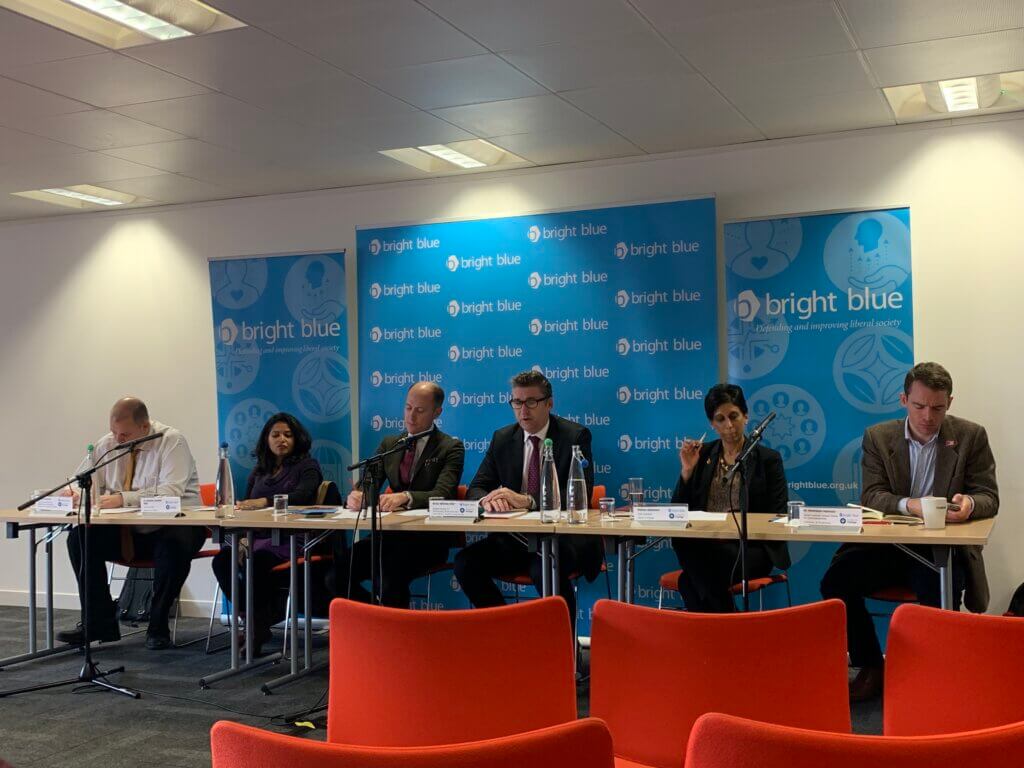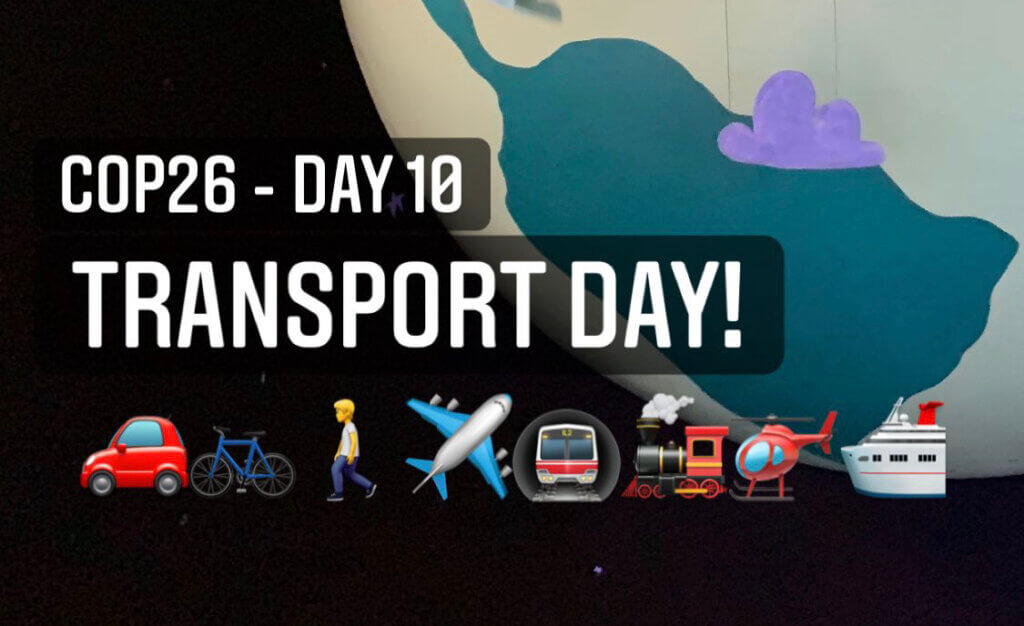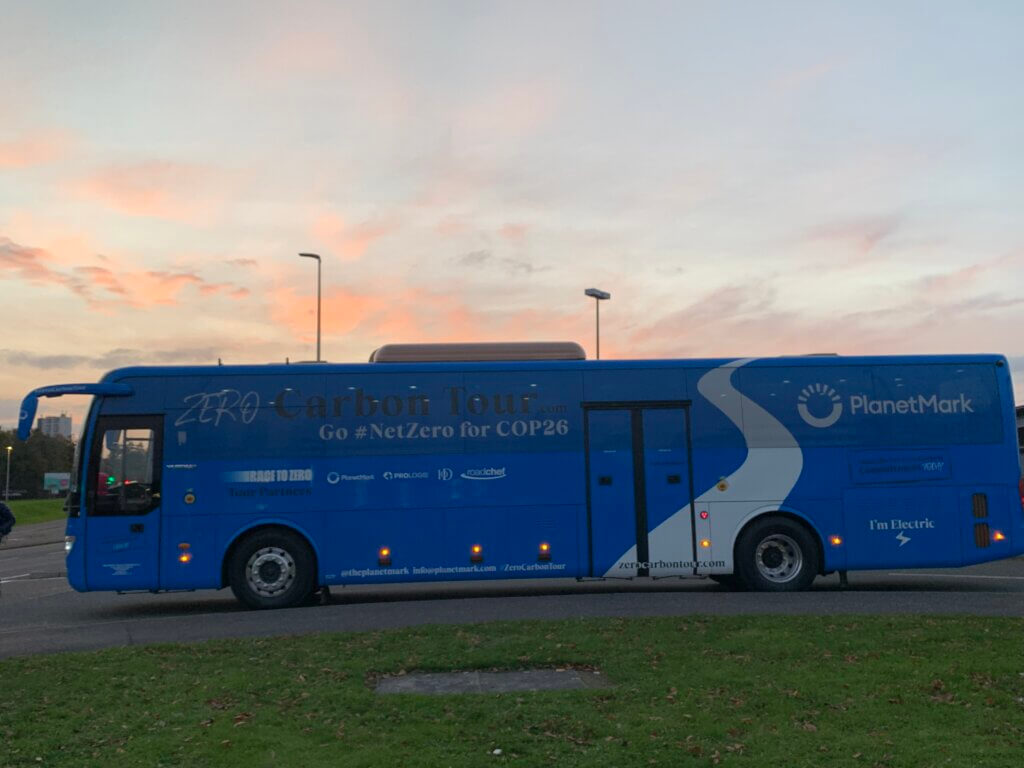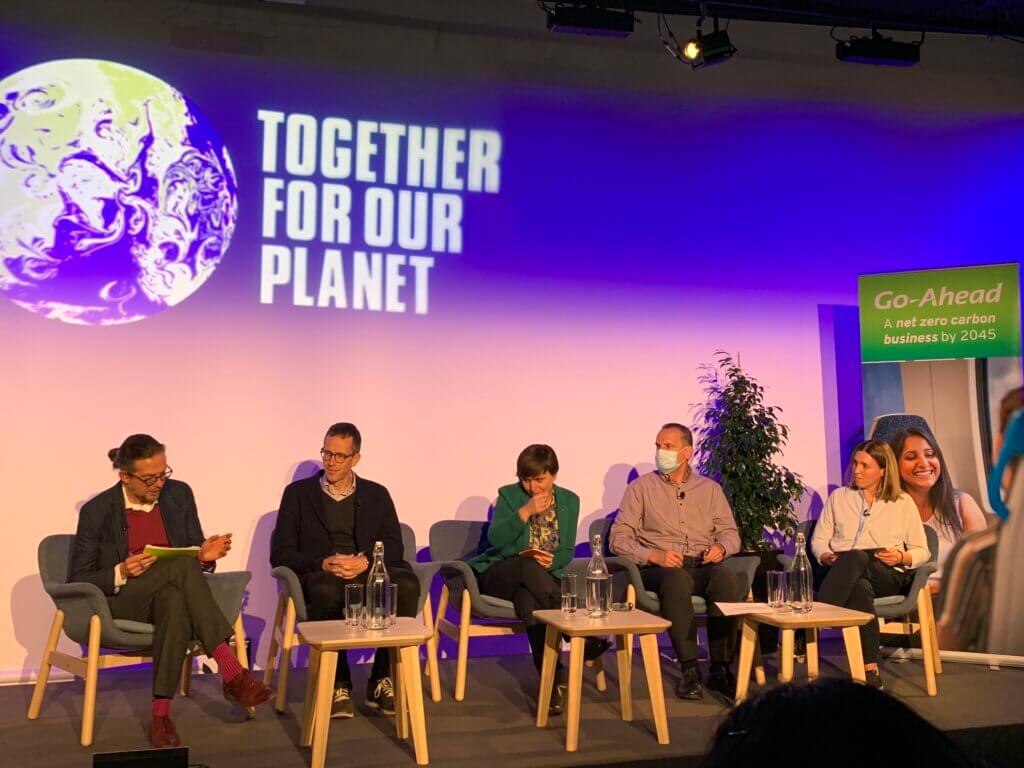COP26 Day 10: Transport
Word of the day: Communities
Today was a little different for me. After a couple of long days in the Blue Zone, I was keen to get out in Glasgow and attend one of the many fringe events. There are a huge number of fringe events taking place over the two weeks of COP26, and, unlike the Blue and Green Zones, they are much easier to access. I was also very keen to put community energy a bit more front and centre. Despite attending some exciting events, they didn’t focus on community energy, specifically in the UK, as much as I had hoped.
Bright Blue x Power to Change: A local solution? Britain’s low-carbon, community energy
As the UK seeks a greener electricity grid, this panel explored community energy’s role in transitioning to a low-carbon, intelligent energy system. This event looked at the economic and social benefits of community energy, what support is needed from the government to help scale-up community energy, and whether NIMBYism is a barrier to the development of community energy projects.
“Rooting solutions locally can truly help enforce a just transition”
Vidhya Alakeson, Power to Change
Bright Blue is an independent think tank for liberal conservatism. Their primary role is to create and vet government policy. Established by Ryan Shorthouse in 2014, they are today a respected and leading think tank – as well as a membership organisation – which delivers an extensive programme of research, publications and events.
Power to Change is a Charitable Trust that supports community businesses to create better places. They help communities use shared power and business to transform where they live. Their mission is to strengthen community businesses to tackle some of society’s biggest challenges at a local level, including the three most significant challenges of our time: climate change, digital transformation and social inequalities.
Speakers:
- Brian Whittle MSP- Shadow Minister for Environment, Biodiversity and Land Reform, Scottish Conservatives
- Patrick Allcorn – Head of Local Net Zero, Department for Business, Energy and Industrial Strategy
- Dr Afsheen Rashid MBE – Chief Executive, Repowering London
- Dr Matthew Hannon – Senior Lecturer, Human Centre for Entrepreneurship – University of Strathclyde
- Vidhya Alakeson – Chief Executive, Power to Change
- Ryan Shorthouse – Chief Executive, Bright Blue (Chair)

What role can community energy play in the transition to a low-carbon, smart energy system?
If anything was clear from this panel, it’s that community energy is exceptionally well placed to be a critical agent of change in the transition to a low-carbon smart energy system. Dr Afsheen Rashid MBE (Repowering London) emphasised this by pointing out that community energy can be vital in ensuring we get a just transition and everyone comes along together, and no one is left behind. Repowering London is doing this by identifying local champions to help drive this agenda forwards and develop connections to communities.
Dr Matthew Hannon (University of Strathclyde) gave a compelling speech that community energy is well placed to help deliver “wider, deeper, faster, fairer” carbon emissions cuts. Wider by going cross sectors, delving deeper in existing sectors, moving faster towards net-zero, and fairer by ensuring the transition is a just one. Dr Hannon also delivered a warning and said that, despite being well-placed, its great potential could be undermined if community energy is executed poorly without a focus on social justice.
Why is community energy essential?
The entire panel agreed that community energy is essential when moving towards a new smart energy system. Patrick Allcorn (BEIS) indicated that one of the main challenges he thinks we face is communication. There are many excellent community energy projects, but not enough people know about or talk about them. They are not easily accessible. This is where community energy organisations can come in to spread the word on a much larger scale.
“Community energy offers an opportunity to challenge our assumptions about energy by encouraging us as individuals to take greater control over energy supply and get involved and engaged with energy efficiency and the process of demand reduction.”
Community Energy England
Why should the future of energy be local?
The panel further highlighted that communities need to be at the heart of the transition because they are the end-users. We need to identify the needs of communities to make the entire system successful and make sure the strategies implemented are effective.
“We must meet people and communities where they are – start with their needs and priorities at a local level and support them to improve housing, transport, local economy etc. with climate benefits as a co-benefit.”
Vidhya Alakeson, Power to Change
Overall, the panel was highly inspiring and was the first time I felt very much in the community energy sphere. It highlighted the lack of community energy in the Blue Zone and the need to put community energy at the forefront of energy policy in the UK. The last time the UK published a community energy strategy was in January 2014. If we are to utilise community energy in a successful just transition effectively, the UK Government must update this strategy.
Green Zone Panel: People make transport: communities enabling greener travel
In my first and only visit to the Green Zone (it took me forever to get there and even longer to get in!) I attended a panel looking at how diverse voices, enthusiasm and creativity can be harnessed to deliver low-carbon transport systems and behaviours in local communities. The Sustainable Transport Alliance hosted the panel, a network of NGOs supporting active travel, public transport and shared mobility.
Speakers:
- Xavier Brice (chair) – CEO, Sustrans
- Richard Dilks – CEO, CoMoUK
- Patrick Harvie MSP – Scottish Minister for Active Travel
- Martin Dean – Managing Director (Bus Development), The Go-Ahead Group
- Cllr Anna Richardson – Councillor in Langside, Glasgow and City Convener for Sustainability and Carbon Reduction
- Jools Townsend – CEO, Community Rail Network
- Professor Greg Marsden – Professor of Transport Governance, University of Leeds
Transport emissions are rising faster globally than in any other sector. The shift to cleaner vehicles is an important one but also a long one. As emphasised by more than one person on the panel, our reliance on private cars, in general, is the first step to achieving meaningful change faster. Public and community transport, walking, cycling and shared mobility must become the ‘natural choice’ for people. Research shows the social side of this change is vital: creating place-based solutions, integrating low-carbon modes, and encouraging and enabling sustainable transport behaviours.
The panel discussed the challenges and benefits of reducing private car use and shifting as many journeys as possible onto public and community transport, walking, cycling and shared mobility. Using examples from diverse locations across the UK, including an employment mobility pilot in South Wales Valleys; travel confidence with young people in Lancashire; people-centred street design in East London; place-making and active travel development in the host city of Glasgow, the panel showed how bringing people and partners together locally leads to innovation, integration across modes, and co-creation of place-based solutions that work on the ground and serve people’s needs.
Go-Ahead hosted the London launch of Road to Renewables, an electric bus tour to COP26 involving an SSE led partnership. The double-decker zero-emission bus has visited Oxford Bus Company and Go North West and Go North East companies en route to arriving in Glasgow.
Watch the panel event here: https://www.youtube.com/watch?v=1pP_o5eJbvA
This was a fantastic day away from the Blue Zone and one I found energising and motivating. It can sometimes be hard to feel as though community energy is taken seriously. However, it is always uplifting when you see exceptional events and have fascinating conversations that put it front and centre.
Follow us to catch up on Zoe’s live reports from COP26 on our Facebook, Instagram and Twitter.



